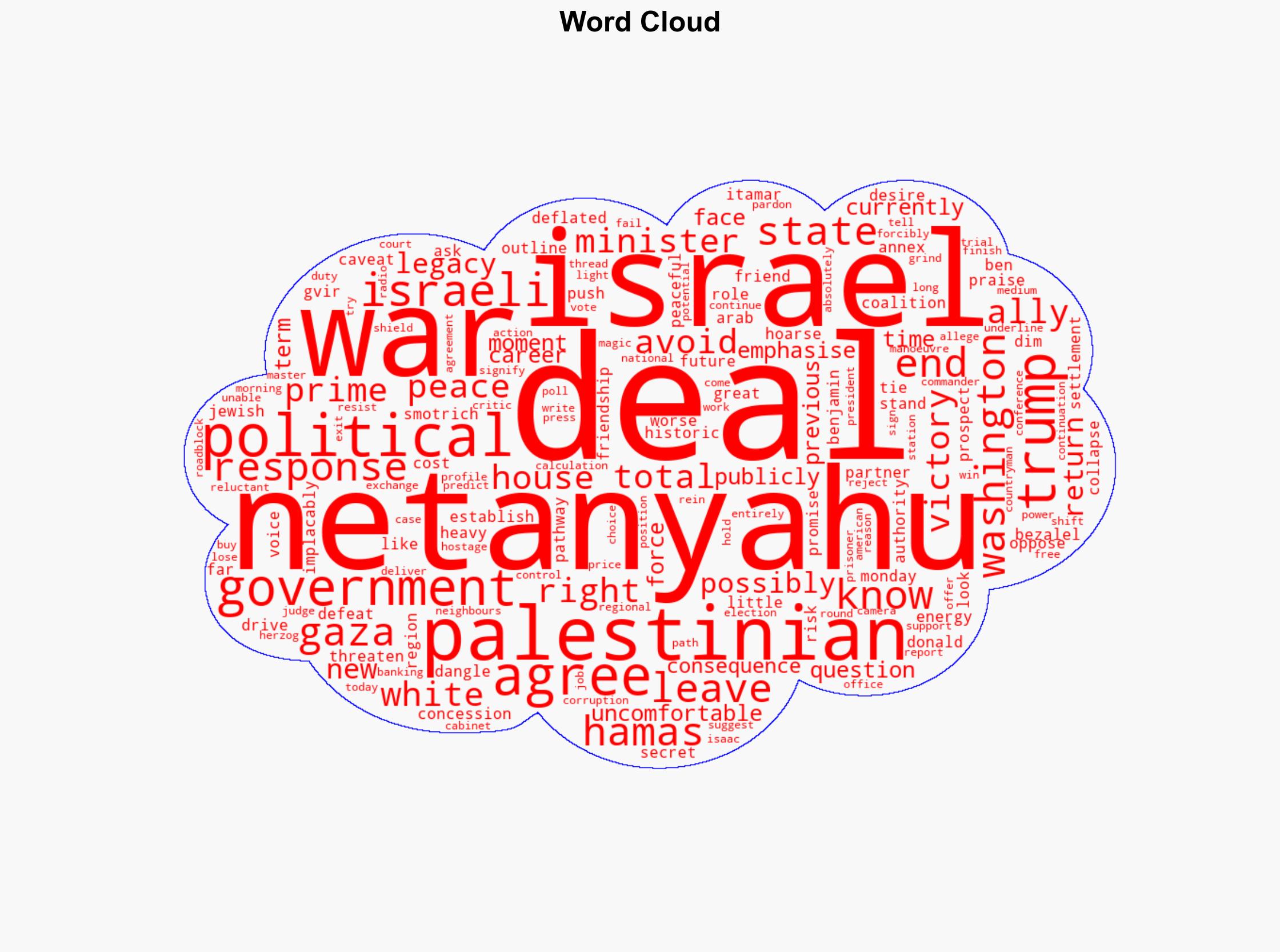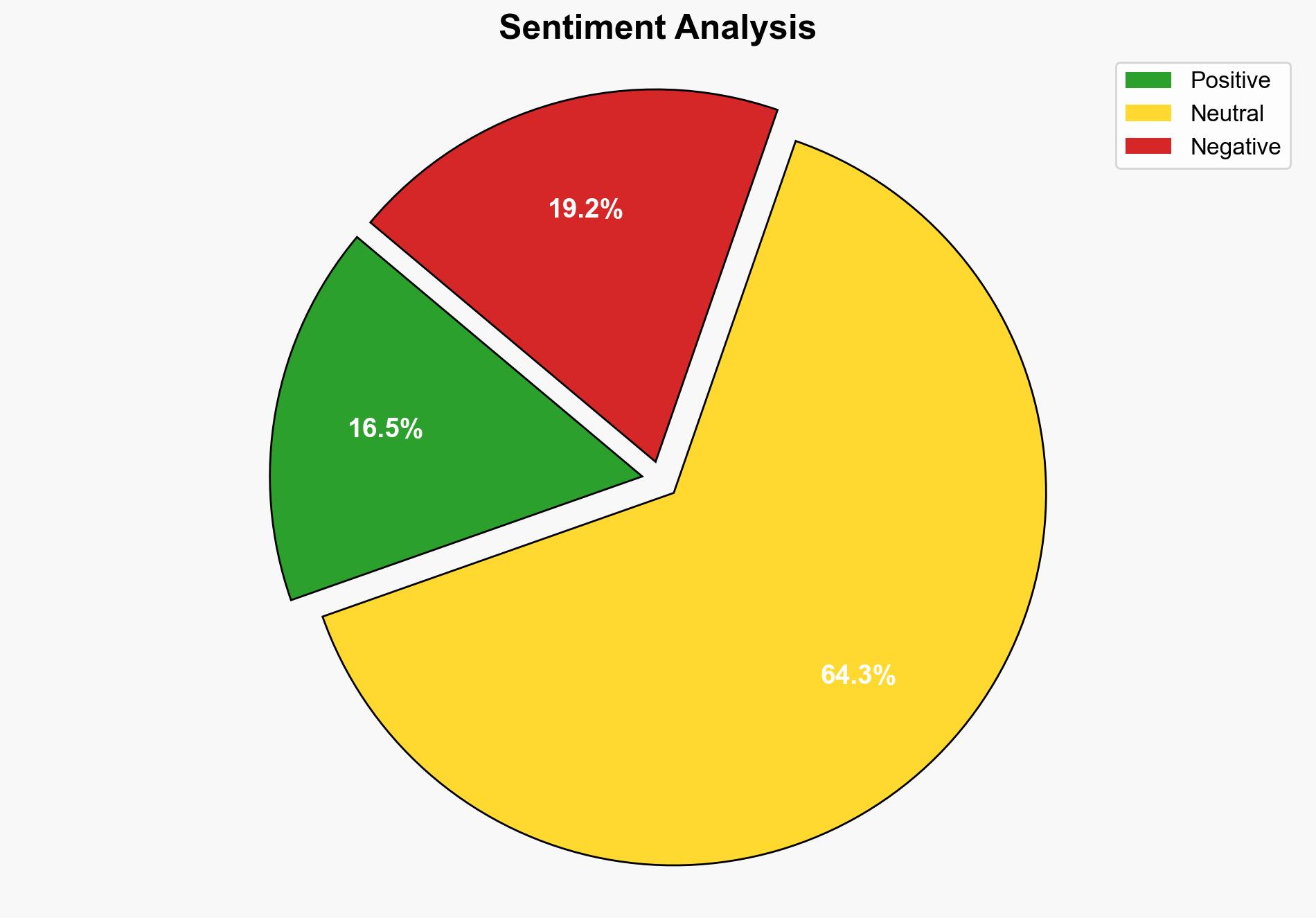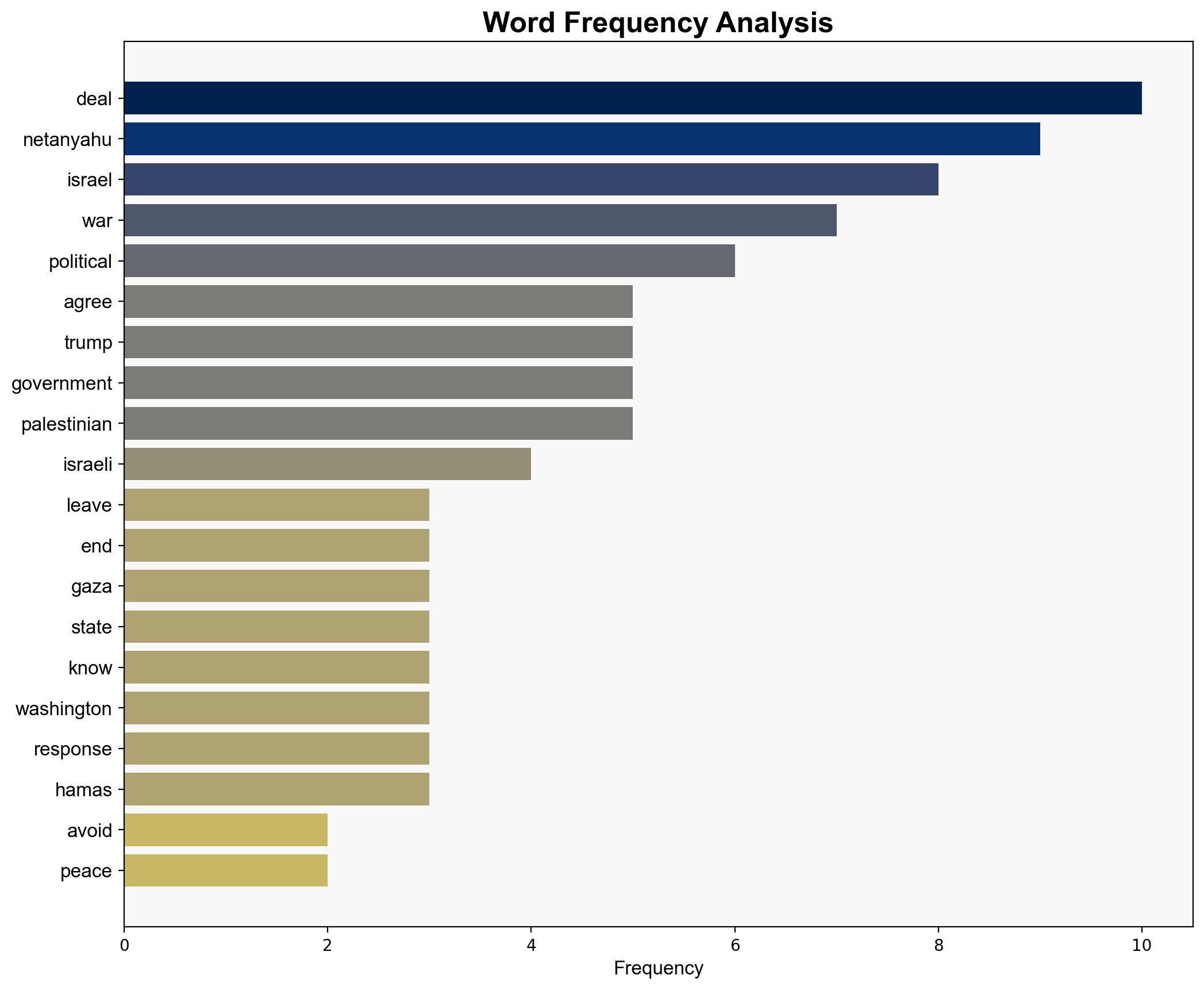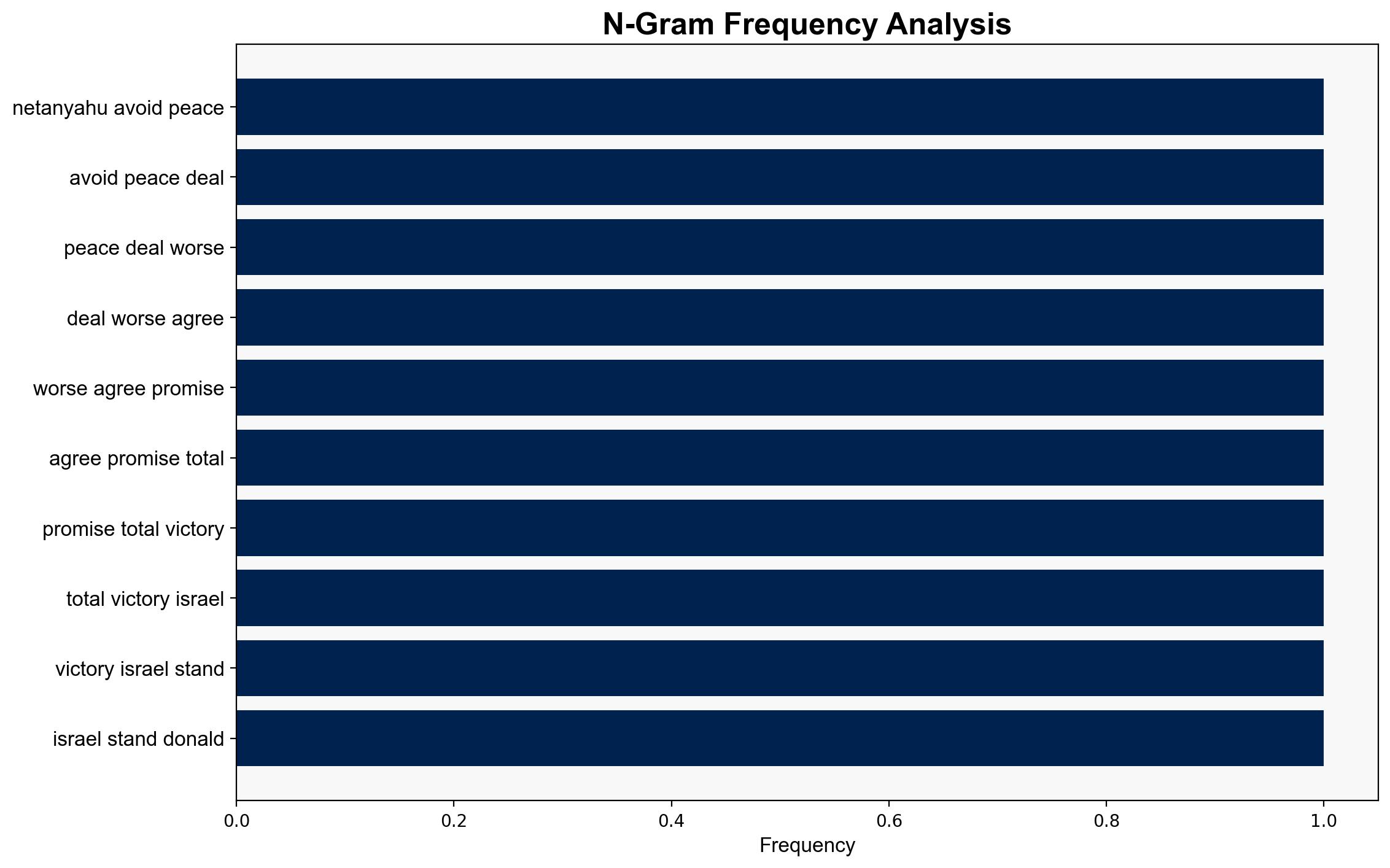For Netanyahu avoiding a peace deal may now be worse than agreeing one – BBC News
Published on: 2025-09-30
Intelligence Report: For Netanyahu avoiding a peace deal may now be worse than agreeing one – BBC News
1. BLUF (Bottom Line Up Front)
The strategic judgment is that Netanyahu is in a precarious position where avoiding a peace deal could be more detrimental than agreeing to one. The most supported hypothesis is that Netanyahu will attempt to balance domestic political pressures with international expectations, potentially leading to a compromise. Confidence level: Moderate. Recommended action: Monitor Netanyahu’s political maneuvers and prepare for potential shifts in Israeli policy towards a peace agreement.
2. Competing Hypotheses
1. **Hypothesis A**: Netanyahu will ultimately agree to a peace deal due to international pressure and the risk of losing U.S. support, which is crucial for Israel’s strategic interests.
2. **Hypothesis B**: Netanyahu will avoid a peace deal to maintain his political coalition and prevent the collapse of his government, banking on the continuation of the status quo and potential rejection by Hamas.
Using ACH 2.0, Hypothesis A is better supported as Netanyahu faces significant pressure from both the U.S. and the potential for a historic legacy. However, Hypothesis B remains plausible due to Netanyahu’s historical resistance to concessions and the internal political dynamics.
3. Key Assumptions and Red Flags
– **Assumptions**: Netanyahu’s political survival is contingent on maintaining his coalition; U.S. support is critical for Israel’s security.
– **Red Flags**: Netanyahu’s past behavior suggests a reluctance to make concessions; potential overestimation of Hamas’s rejection of a deal.
– **Blind Spots**: The internal dynamics within Hamas and their potential willingness to negotiate are not fully understood.
4. Implications and Strategic Risks
– **Geopolitical**: A peace deal could shift regional alliances and improve Israel’s relations with Arab neighbors.
– **Economic**: Prolonged conflict could strain Israel’s economy and international relations.
– **Psychological**: Public perception of Netanyahu’s leadership could be affected by his decision, impacting his political future.
– **Escalation Scenarios**: Failure to reach a deal could lead to increased hostilities and regional instability.
5. Recommendations and Outlook
- Encourage diplomatic engagement with both Israeli and Palestinian leadership to facilitate dialogue.
- Prepare contingency plans for potential escalations in the region.
- Best Scenario: A peace deal is reached, stabilizing the region and enhancing Israel’s diplomatic standing.
- Worst Scenario: Continued conflict leads to regional instability and economic downturn.
- Most Likely Scenario: Netanyahu attempts to delay decision-making, seeking a balance between domestic and international pressures.
6. Key Individuals and Entities
– Benjamin Netanyahu
– Donald Trump
– Bezalel Smotrich
– Itamar Ben Gvir
– Isaac Herzog
7. Thematic Tags
national security threats, geopolitical strategy, regional stability, political dynamics





